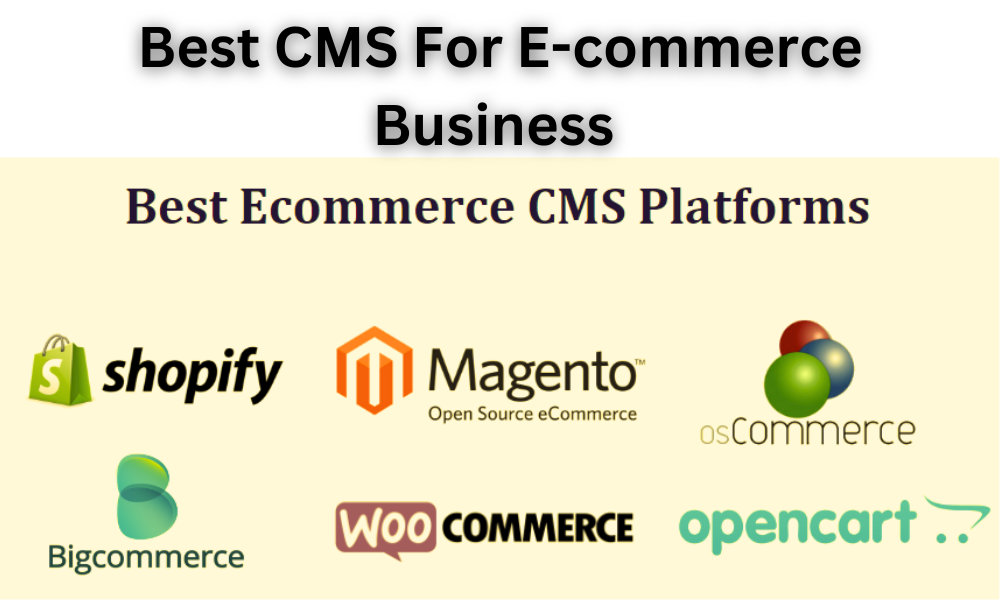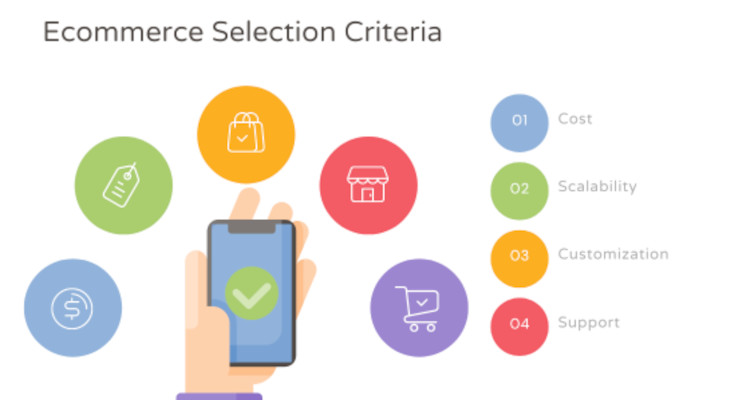In the rapidly evolving world of e-commerce, having a robust Content Management System (CMS) is vital for managing and scaling your online business effectively. A CMS enables you to create, modify, and organize your digital content with ease. However, with a plethora of options available, choosing the right CMS can be a daunting task. In this article, we will explore the ten best CMS platforms tailor-made for e-commerce businesses, offering an in-depth analysis of their features and benefits.
What is a CMS for E-commerce?
A CMS for e-commerce is a software application that facilitates the creation, management, and publication of digital content related to online stores. It empowers businesses to showcase their products, manage inventory, process orders, and handle other essential aspects of eCommerce website development seamlessly. With an e-commerce CMS, merchants can focus on delivering an exceptional shopping experience to customers without getting bogged down in technical complexities.

Key Features to Consider
When selecting an e-commerce CMS, it’s crucial to prioritize specific features to ensure optimal performance and user experience. Some essential features to consider are:
1. User-Friendly Interface
A user-friendly interface is vital to simplify the process of content creation and management. Look for intuitive dashboards and drag-and-drop functionalities that allow easy customization of your e-commerce store.
2. Product Management
Efficient product management tools are essential for organizing and categorizing products effectively. Ensure the CMS can handle a large product inventory with ease.
3. Payment Gateways and Security
Secure payment gateways are paramount for building trust with customers. The CMS should support multiple payment options and comply with industry security standards.
4. SEO and Marketing
A strong SEO and marketing suite can help drive organic traffic and boost sales. Look for features like metadata customization, URL optimization, and integration with marketing tools.
5. Mobile Responsiveness
In today’s mobile-driven world, a CMS must provide seamless experiences across various devices. Mobile responsiveness is critical for enhancing customer engagement.
6. Scalability
As your e-commerce business grows, the CMS should be scalable to accommodate increased traffic and demand without compromising performance.
7. Integrations and Add-ons
The ability to integrate with third-party tools and add-ons expands the functionality of your e-commerce store. Check for compatibility with popular apps and extensions.
8. Customer Support
Responsive customer support ensures prompt resolution of issues. Seek out platforms that provide dependable customer support channels.
Top 10 CMS for E-commerce Businesses
Now, let’s delve into the top ten CMS platforms specifically designed for e-commerce businesses:
1. Magento
Magento is a robust open-source CMS known for its flexibility and scalability. It offers a wide range of features and customization options, making it ideal for large and complex online stores.
2. WooCommerce
Built as a plugin for WordPress, WooCommerce is a popular CMS for small to medium-sized e-commerce businesses. It provides seamless integration with WordPress and offers numerous extensions for enhanced functionality.
3. Shopify
Shopify is a user-friendly CMS that allows businesses to set up their online stores quickly. It offers a range of templates and customization options, making it suitable for both beginners and experienced merchants.
4. BigCommerce
BigCommerce is a fully hosted CMS with excellent built-in SEO features. It is known for its ease of use and scalability, making it a preferred choice for growing e-commerce businesses.
5. OpenCart
OpenCart is an open-source CMS that is easy to install and use. It offers a range of opencart themes and extensions to enhance your online store’s appearance and functionality.
6. PrestaShop
PrestaShop is another open-source CMS known for its user-friendly interface and extensive module library. It presents an excellent option for small to medium-sized businesses.
7. Wix
Wix is a user-friendly website builder that also offers e-commerce functionality. It is ideal for beginners who want an all-in-one platform for their online presence.
8. Squarespace
Squarespace is a visually appealing CMS that caters to creative businesses. It offers beautiful templates and a user-friendly interface for managing e-commerce stores.
9. Drupal Commerce
Drupal Commerce is an open-source CMS that integrates seamlessly with Drupal. It offers robust features and excellent flexibility for businesses with specific requirements.
10. Joomla! + VirtueMart
Joomla! paired with VirtueMart provides a powerful e-commerce solution. Joomla! offers a solid content management system, while VirtueMart handles the e-commerce functionality.
Comparison of the Top CMS Platforms
Before choosing the best CMS for your e-commerce business, compare the top ten platforms based on various factors, such as cost, scalability, customization, and support.

FAQ’s
Here are some frequently asked questions (FAQs) related to the topic “10 Best CMS for E-commerce Business You Can Use”:
Conclusion
Selecting the right CMS for your e-commerce business is crucial for its success and growth. Each of the ten CMS platforms listed in this article has its unique strengths, catering to businesses of different sizes and niches. By considering your specific needs and priorities, you can make an informed decision that aligns with your long-term goals.

Mansoor Khattak
Tech Indexer“I am Mansoor Khattak, a professional SEO expert with 4 years of experience. I manage various blogs, business websites, and work across multiple SEO domains.”

